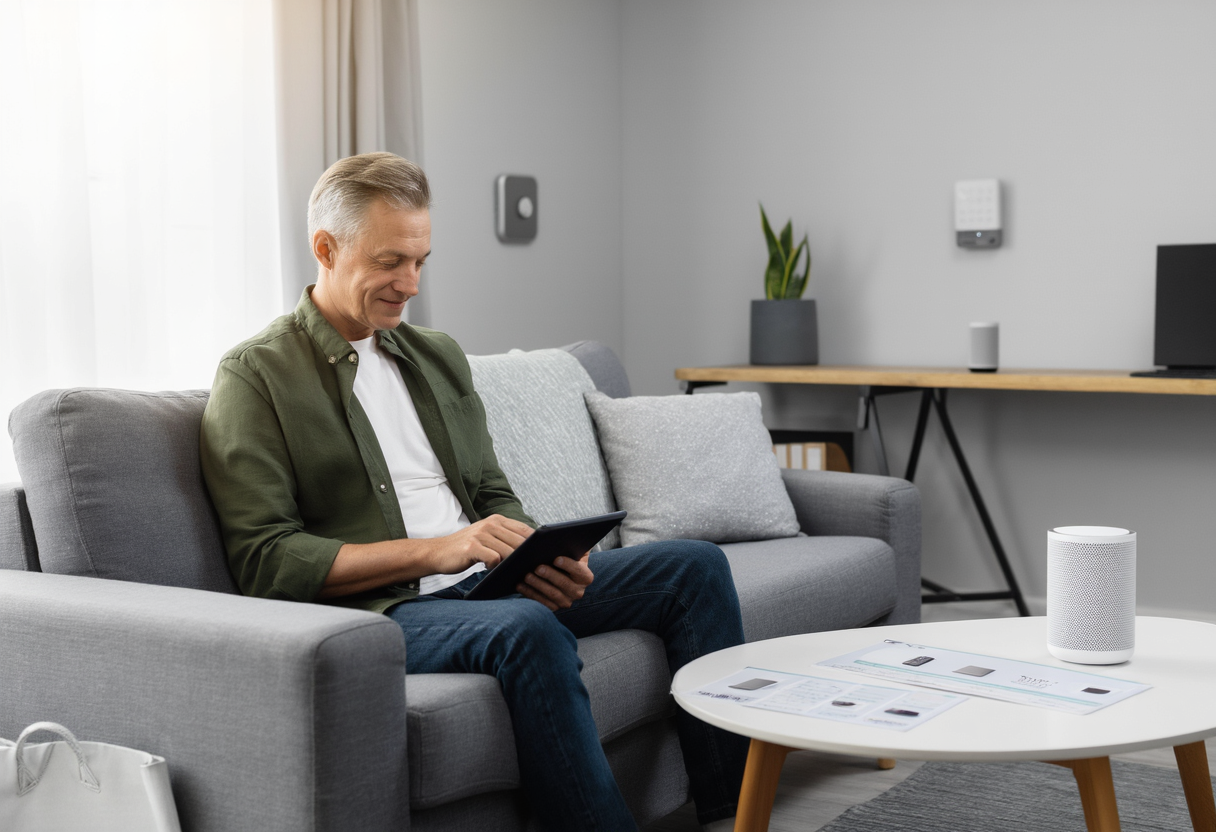Are Smart Home Devices Worth It? Evaluating Costs and Benefits
As Smart Home Devices proliferate, many homeowners grapple with whether they truly justify the costs. This article delves into the financial implications of adopting these technologies, alongside their myriad benefits. By weighing both sides, consumers can make informed decisions about their investments in modern living.
The Financial Aspects of Smart Home Devices
Investing in Smart Home Devices entails weighing essential financial considerations for homeowners. The initial costs of purchasing devices can deter potential buyers; however, it's essential to view these expenses as a long-term investment. Many smart devices promise a reduction in utility bills, as energy-efficient models can significantly cut monthly costs. For example, a smart thermostat can lower heating and cooling bills by learning and adapting to user habits. Furthermore, potential insurance discounts for homes equipped with Smart Home Devices can further offset initial costs. Homeowners must also consider the added value these devices bring to their properties. As demand for smart technology in real estate grows, homes featuring advanced systems can command higher resale prices. While the upfront investment may seem daunting, understanding the financial benefits can shift the perception of Smart Home Devices from a luxury to a necessity.
The Benefits: Convenience and Lifestyle Enhancements
The convenience of Smart Home Devices consistently ranks among the most celebrated benefits. Imagine controlling your lights, thermostat, and security system from a single application on your smartphone – it’s a scenario that has become commonplace among smart technology users. These devices greatly enhance daily living, whether it’s setting a morning routine that automates your coffee brewing or creating a cozy atmosphere with smart lighting. Moreover, some Smart Home Devices offer integrations with advanced AI that can adapt to your preferences over time, thus personalizing your home experience. The enriched lifestyle extends beyond mere convenience; it also encourages energy efficiency and sustainability by allowing for more precise control over energy usage. Embracing Smart Home Devices can lead to transformative lifestyle changes, promoting a smarter, more efficient daily routine. However, users must remain critical of tech dependence to ensure that convenience does not translate into complacency.
Potential Drawbacks of Smart Home Devices
Despite the numerous advantages, there are potential drawbacks to adopting Smart Home Devices that consumers must consider. Chief among these concerns is the issue of privacy, as many devices collect significant amounts of personal data. This information can be vulnerable to security breaches, leading to intense scrutiny surrounding Smart Home Devices. Additionally, compatibility issues between brands can create a fragmented user experience. Devices may not communicate well with one another, leading to frustration. Furthermore, the reliance on a stable Wi-Fi connection is crucial, making homes without consistent internet access less suitable for smart technology. Patience and understanding are needed when navigating these concerns; however, it's essential for consumers to remain vigilant. Continuous advancements in cybersecurity must accompany the expansion of Smart Home Devices to ensure a safe and trusted environment for users.
Evaluating Return on Investment
When contemplating the integration of Smart Home Devices, evaluating the potential return on investment (ROI) is vital. Calculating savings on utility bills and potential increased property value can provide a clearer picture of financial benefits over time. Although upfront costs may deter some consumers, it's important to conduct a comprehensive analysis, factoring in both tangible and intangible benefits, such as lifestyle enhancements and convenience. Many homeowners find that one device leads to the adoption of additional devices, creating a network effect in which multiple devices contribute to greater efficiency and savings. Tracking these benefits can involve monitoring energy consumption, tracking utility bills, and observing changes in daily routines. By establishing clear metrics for success, homeowners can ensure their investments in Smart Home Devices are worthwhile, translating into enhanced quality of life and transforming their homes into smart environments.
Conclusion: Making Informed Decisions About Smart Home Devices
As Smart Home Devices continue to evolve and become commonplace, making informed decisions is essential for consumers. Weighing the costs against the benefits encourages a thoughtful approach to embracing modern technology. Understanding the financial implications, coupled with the conveniences and potential drawbacks, empowers consumers to assess whether these devices fit their lifestyle. Ultimately, every homeowner should consider their unique needs, preferences, and budget before taking the plunge into smart technology. With a discerning eye and a clear understanding of what Smart Home Devices offer, consumers can truly capitalize on the advantages these innovations bring to their lives.
content
